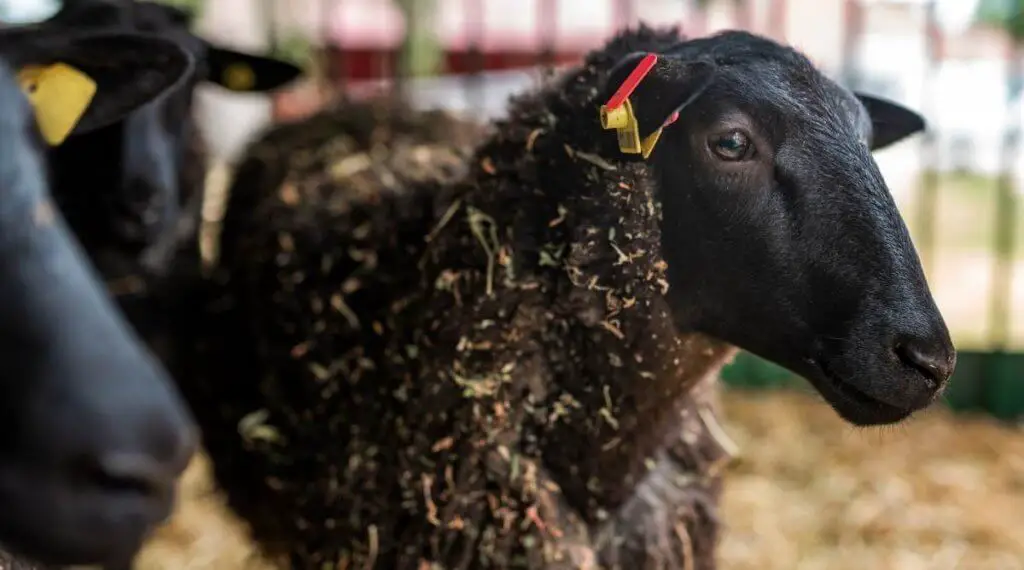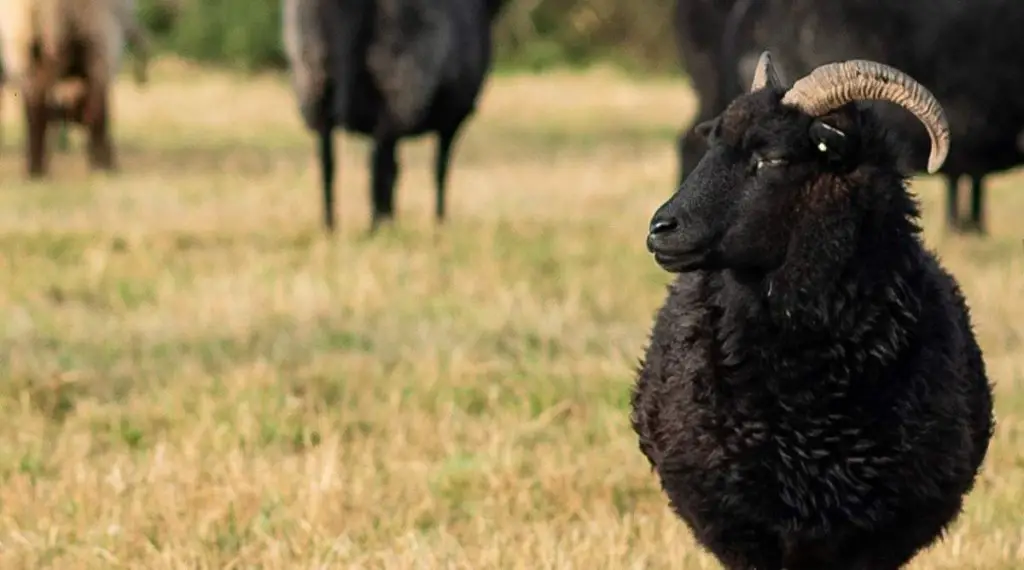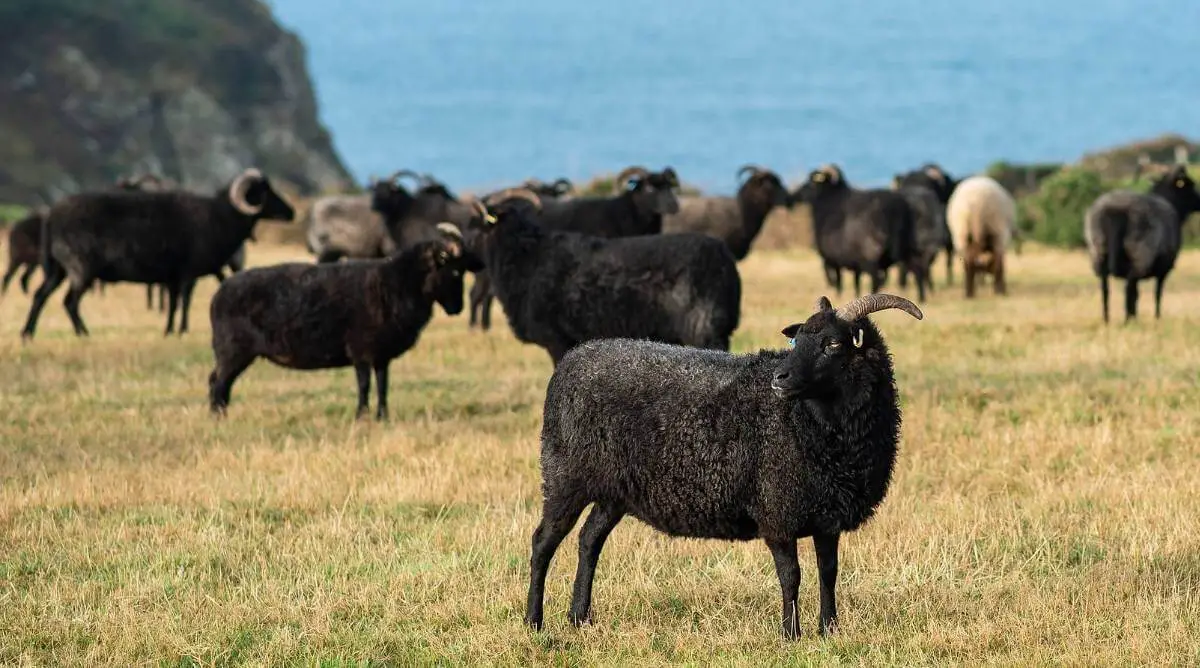Black Welsh Mountain Sheep are self-reliant and easy to maintain with little management, making them an ideal breed for smallholding and commercial farming. Benefits of this breed include high fertility, strong maternal instincts, fast growth, quality meat, and resistance to fly attacks and infections.
Table of Contents
Black Welsh Mountain Sheep Origin
Originally from Wales, the breed was first introduced into the United States in 1973. Black Welsh Mountain are a small breed that is easy to handle and manage. They have natural protection against diseases which is invaluable in the sheep industry.
Black Welsh Mountain Sheep graze well on outlying grazing areas but are also known to thrive on the lowlands or in smallholdings. This is an undemanding breed that is self-reliant and hardy.
The primary purpose for breeding is meat production and wool. The Black Welsh Mountain Sheep is the ideal match for both commercial sheep breeders and smallholders.
Characteristics of Black Welsh Mountain Sheep

Black Welsh Mountain sheep are like any other Welsh Mountain sheep. The only difference is that they are completely black. They are a small breed that is known for their hardiness.
The legs and face of the Black Welsh Mountain Sheep have no wool covering. While the rams are horned, the ewes are not and are normally polled.
The ewes are naturally maternal and easily lamb in the open, under normal management. The breed is synonymous with very high fertility. Lambing season is from February to March. The lambs are known for their fast development. These factors mean the breed is a good one for farmers raising sheep.
| Characteristics | Description |
| Origin | Wales |
| Appearance | Similar to Welsh Mountain Sheep, but black. No wool covering on the legs or face. Rams are horned, but the ewes are not. |
| Weight | 100 pounds (Ewes), 145 pounds (Rams) |
| Wool | Firm, thick, dark wool that doesn’t need to be dyed. Fiber fineness ranges between 29 and 36 microns. Staple length averages 3-4 inches. |
| Fertility | Known for very high fertility. Lambs are known for fast development. |
| Meat | High-quality with succulent, lean meat in the joints. Rich in color and flavor. Wasteful fat is at a minimum. |
| Other attributes | Adaptable and hardy. Shepherds leave them to forage in the mountains, rounding them up a few times per year for lambing or shearing. |
| Common uses | Floor coverings, rugs, chair backs. |
What Black Welsh Mountain Sheep wool is used for

The short, black wool of the Black Welsh Mountain Sheep is firm and thick and doesn’t need to be dyed. It is suited for use in making durable cloth which is both light and warm.
The fleece of Black Welsh Mountain Sheep is popular for various uses. It is ideal for home spinners, hand spinners, and weavers.
There is an elevated demand for the dark fleeced skins to be used as floor coverings and rugs or in the creation of chair backs. Fiber fineness ranges between 29 and 36 microns. Staple length averages 3-4 inches.
What’s the meat of Black Welsh Mountain Sheep like?
The Black Welsh Mountain breed produces high-quality meat, with succulent, lean meat in the joints. The meat is rich in color and packed full of flavor. Wasteful fat is at a bare minimum.
Purebred finished lambs maintain a carcass weight of 32-35 pounds. This is the ideal size and well-suited to present-day demand. The average weight of a mature ewe would be around 100 pounds, with the average ram weighing in at 145 pounds.
What environments are best for Black Welsh Mountain Sheep?
Black Welsh Mountain sheep are hardy and are known to survive in harsh conditions.
The ease with which this breed can lamb and the distinct mothering abilities of the ewes make them the ideal sheep for the hilly, mountainous Welsh terrain.
Shepherds leave the sheep in the Welsh mountains to forage. They are usually only rounded up a few times yearly for lambing or shearing.
Black Welsh Mountain Sheep Associations
The breed has strong, successful historical links with the Royal Smithfield Show that dates back to the 1920s. It was at this show that the first black welsh mountain sheep breeders association was formed.

